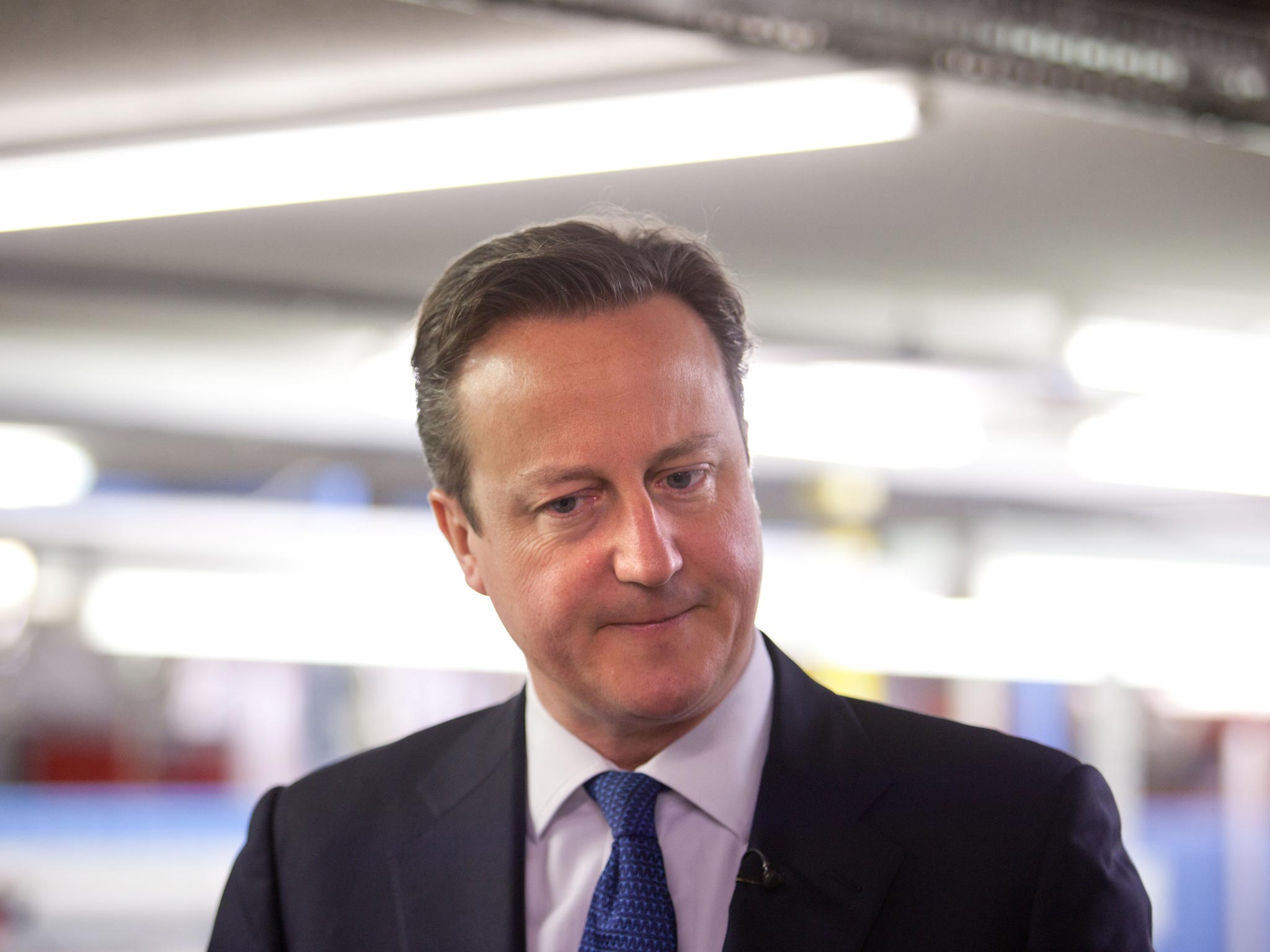Scottish independence: David Cameron 'emotional and nervous' ahead of referendum
PM accused Scottish government of being bullying and overbearing

Your support helps us to tell the story
From reproductive rights to climate change to Big Tech, The Independent is on the ground when the story is developing. Whether it's investigating the financials of Elon Musk's pro-Trump PAC or producing our latest documentary, 'The A Word', which shines a light on the American women fighting for reproductive rights, we know how important it is to parse out the facts from the messaging.
At such a critical moment in US history, we need reporters on the ground. Your donation allows us to keep sending journalists to speak to both sides of the story.
The Independent is trusted by Americans across the entire political spectrum. And unlike many other quality news outlets, we choose not to lock Americans out of our reporting and analysis with paywalls. We believe quality journalism should be available to everyone, paid for by those who can afford it.
Your support makes all the difference.David Cameron is feeling “emotional and nervous" ahead of the forthcoming referendum on Scottish independence, but remains confident Scots will vote against leaving the UK.
Current polls suggest support for independence is still trailing behind backing for staying in the union, despite Alex Salmond’s recent televised debating victory with ‘No’ campaign leader Alistair Darling.
The Prime Minister told the Scottish Daily Mail newspaper he believes the 'No' campaign is going well, insisting he was only nervous “because it matters so much.”
"I think the debate is going well. I think, the last few visits I've made, I've sensed that in the business community. The commentary has settled down, the argument is going better and I feel more confident. But it is a massive decision, so it’s right to be both emotional and nervous,” he said.
The Conservative leader said that while some pro-Union Scots are not as vocal about their support as those who want independence, “they love the NHS and the BBC and the fact that when your children go to university in London or you live in London and your children go to university in Glasgow you don’t feel like they’re going to a foreign country.
The possible economic impact of secession has been central to arguments between the two camps and on Thursday Mr Cameron claimed one million jobs could be put at risk if Scotland were to leave the United Kingdom.
A currency union between Scotland and the rest of the UK has also been a key sticking point between both sides.
"People can see the overwhelming opinion of businesses is that we are better off if the UK stays together," he said.
"But I do hear a lot of businesses say they are frightened to speak because when they do the Scottish government behaves in a bullying and overbearing way."
A summary poll conducted on 15 August, which was based on an average of the last six polls and excluded undecided respondents, found support for a breakaway stood at 43 per cent against 57 per cent for remaining within Britain.
However a survey for the Scottish Daily Mail earlier this week indicated the gap had narrowed, with the "No" campaign enjoying just a six-point lead over supporters of independence, with many people still undecided.
Additional reporting by PA
Join our commenting forum
Join thought-provoking conversations, follow other Independent readers and see their replies
Comments